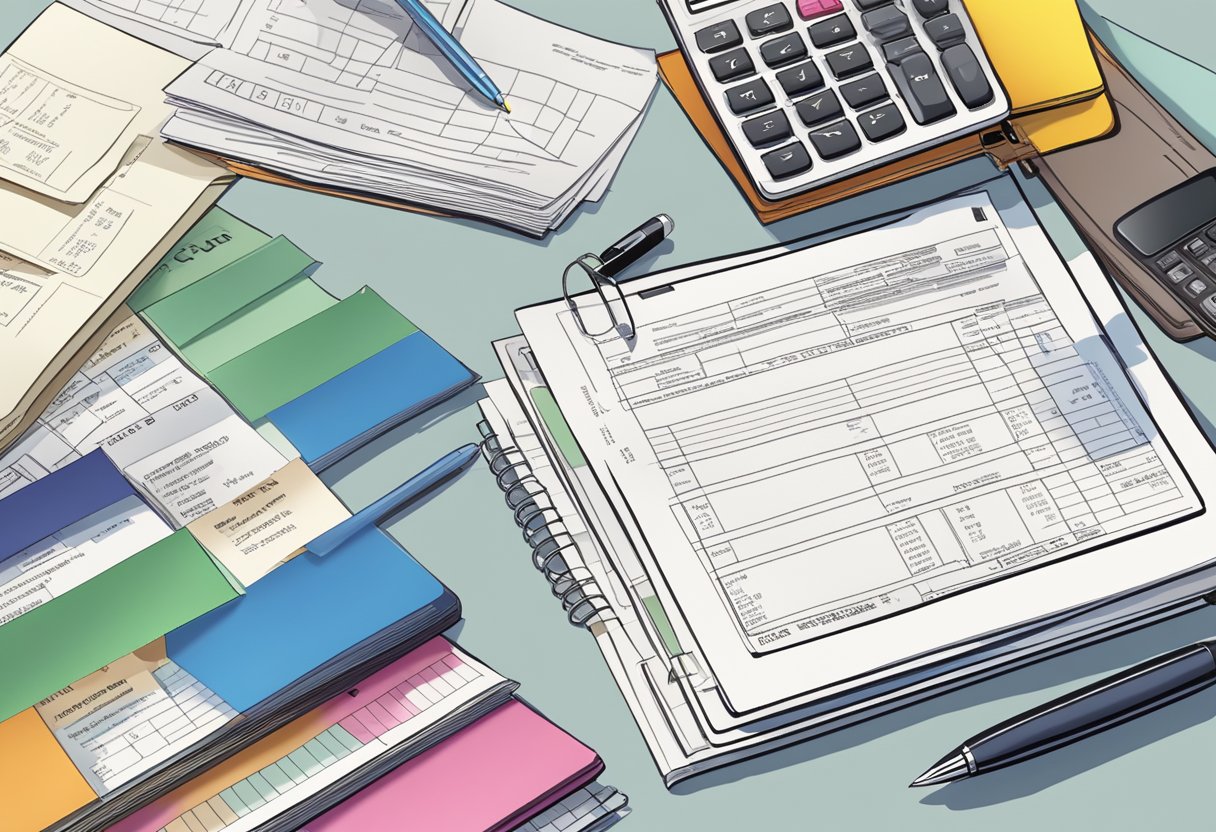Sole proprietors have a unique advantage when it comes to managing their taxes. They have the flexibility to claim deductions on business expenses that can help reduce their taxable income. However, many sole proprietors are not aware of the expenses they can claim and end up paying more taxes than necessary. In this article, we will discuss six expenses that sole proprietors can make use of to reduce their tax liability.

One of the most significant expenses that sole proprietors can claim is business expenses. This includes expenses related to running the business, such as rent, utilities, and office supplies. By claiming these expenses, sole proprietors can reduce their taxable income and lower their tax liability. Additionally, sole proprietors can claim the expenses incurred for maintaining their business website, advertising their business, and attending business-related conferences and seminars.
Another expense that sole proprietors can claim is their health insurance policy. Sole proprietors can deduct the premiums paid towards their health insurance policy from their taxable income. This can significantly reduce their tax liability. Additionally, sole proprietors can claim the premiums paid towards their life insurance policy, subject to certain conditions.
Key Takeaways
- Sole proprietors can claim business expenses to reduce their taxable income.
- Health insurance premiums and life insurance premiums can be claimed as deductions.
- Housing loan interest, children’s school fees, and investment in public provident fund can also be claimed as deductions.
Business Expenses

As a sole proprietor, there are several expenses that can be utilized to reduce your tax liability. These expenses are legitimate business expenses and can be claimed as deductions on your tax return.
Salaries
One of the biggest expenses for any business is salaries. As a sole proprietor, you can pay yourself a salary and deduct it as a business expense. This can help reduce your taxable income and lower your tax liability. However, it is important to ensure that the salary you pay yourself is reasonable and in line with industry standards.
Rent
If you have a physical office or workspace, rent is another expense that can be claimed as a deduction. This includes rent paid for a storefront, warehouse, or any other space used for business purposes. It is important to keep accurate records of rent payments and ensure that the space is used exclusively for business purposes.
Travel
Travel expenses incurred for business purposes can also be claimed as deductions. This includes airfare, hotel stays, and meals while on business trips. It is important to keep accurate records of all travel expenses and ensure that they are necessary and ordinary expenses for your business.
Electricity
Electricity bills can be claimed as a business expense if you have a home office or workspace. This includes expenses related to heating, cooling, and lighting the workspace. It is important to keep accurate records of all electricity bills and ensure that the expenses are reasonable and necessary for your business.
Health Insurance Policy
As a sole proprietor, one can avail of tax benefits on health insurance policies. Health insurance premiums paid for self, spouse, children, and parents can be claimed as a deduction under Section 80D of the Income Tax Act.
Self
A sole proprietor can claim a deduction of up to Rs. 25,000 for health insurance premiums paid for self. If the sole proprietor is a senior citizen, the deduction limit increases to Rs. 50,000.
Spouse
A deduction of up to Rs. 25,000 can be claimed for health insurance premiums paid for the spouse. If the spouse is a senior citizen, the deduction limit increases to Rs. 50,000.
Children
A deduction of up to Rs. 25,000 can be claimed for health insurance premiums paid for dependent children. If the dependent child is a senior citizen, the deduction limit increases to Rs. 50,000.
Parents
A deduction of up to Rs. 25,000 can be claimed for health insurance premiums paid for parents. If the parent is a senior citizen, the deduction limit increases to Rs. 50,000. In case both parents are senior citizens, the deduction limit increases to Rs. 1,00,000.
One can also claim an additional deduction of up to Rs. 5,000 for preventive health check-ups for self, spouse, dependent children, and parents.
It is important to note that health insurance policies must be purchased from a registered insurance company to claim the deduction. One must also keep all the receipts and documents related to the health insurance premiums paid and the preventive health check-ups done to claim the deduction.
Life Insurance Policy

A life insurance policy is an expense that can be used to reduce a sole proprietor’s tax liability. The premiums paid towards the policy are considered as business expenses and can be claimed as a deduction while filing tax returns.
The policy provides financial security to the family in case of the proprietor’s untimely demise. It also serves as a tool for estate planning and can be used to pay off any outstanding debts or taxes.
It is important to note that the sole proprietor should be the owner and beneficiary of the policy. If the policy is owned by someone else, it may not be eligible for tax deductions.
Housing Loan

A sole proprietor can claim deductions on the interest paid on a housing loan taken for business purposes. This deduction can be claimed under Section 24 of the Income Tax Act. The maximum amount of deduction that can be claimed is Rs. 2 lakh per annum.
It is important to note that the housing loan must be taken in the name of the sole proprietor and not in the name of the business. Additionally, the loan must be used for business purposes only. If the loan is used for personal purposes, the deduction cannot be claimed.
The interest paid on the housing loan can be claimed as a deduction from the income generated from the business. This will reduce the taxable income and, in turn, reduce the tax liability of the sole proprietor.
It is advisable to maintain proper records of the loan and the interest paid to claim the deduction accurately.
For further assistance on tax-related matters, one can contact myGSTzone.com, a private limited company with over 800 5-star reviews on Google. They can be reached on 70 9232 9232 on mobile or WhatsApp from Monday to Saturday, 10am to 7pm.
Children’s School Fees
As a sole proprietor, one of the expenses that can be claimed as a deduction on your tax return is your children’s school fees. This deduction can be claimed for children up to the age of 18 years old.
To claim this deduction, it is important to keep receipts and other supporting documents. The deduction is limited to tuition fees and does not include other expenses such as transportation or meals.
It is important to note that this deduction is only available for children attending recognized schools. This means that if your child is attending a school that is not recognized by the government, you will not be able to claim this deduction.
By claiming this deduction, you can reduce your taxable income and ultimately pay less tax. It is important to consult with a tax professional or use a tax software like myGSTzone.com to ensure that you are claiming all deductions correctly.
Investment in Public Provident Fund
One of the most popular ways for sole proprietors to save on taxes is by investing in Public Provident Fund (PPF). PPF is a government-backed savings scheme that offers tax benefits under Section 80C of the Income Tax Act.
By investing in PPF, a sole proprietor can claim a deduction of up to Rs. 1.5 lakh from their taxable income, thereby reducing their tax liability. In addition, the interest earned on PPF is tax-free, making it an attractive investment option for those looking to save on taxes.
It is important to note that the lock-in period for PPF is 15 years, which means that the funds cannot be withdrawn before that time. However, partial withdrawals are allowed after the completion of 5 years, subject to certain conditions.
Overall, investing in PPF can be a smart way for sole proprietors to save on taxes while also building a corpus for their future needs.
Frequently Asked Questions
What types of business expenses are deductible for a sole proprietor?
As a sole proprietor, you can deduct any ordinary and necessary expenses incurred while running your business. This includes expenses such as rent, utilities, office supplies, and advertising costs. Additionally, expenses related to travel, meals, and entertainment can also be deductible, but only if they are directly related to your business.
How can a sole proprietor write off business expenses on personal taxes?
Sole proprietors can write off business expenses on their personal taxes by keeping track of all expenses related to their business and deducting them on Schedule C of their personal tax return. It is important to keep accurate records and receipts of all expenses to support the deduction.
What are some common tax deductions available to self-employed individuals?
Self-employed individuals can take advantage of a variety of tax deductions, including deductions for home office expenses, health insurance premiums, and contributions to retirement accounts. Additionally, expenses related to business travel, education, and professional development can also be deductible.
Are there any tax deductions I can claim as a sole proprietor without receipts?
No, as a sole proprietor, you must have receipts or other documentation to support any deductions you claim on your tax return. It is important to keep accurate records of all business expenses to ensure that you are able to claim all eligible deductions.
What strategies can sole proprietors employ to legally minimize their taxable income?
Sole proprietors can minimize their taxable income by maximizing deductions and taking advantage of tax credits. Additionally, it may be beneficial to defer income to future years or accelerate expenses into the current year to reduce taxable income.
How does a sole proprietor categorize expenses to ensure they are tax-deductible?
Sole proprietors should categorize expenses as either ordinary and necessary business expenses or personal expenses. Only ordinary and necessary business expenses are deductible, so it is important to keep accurate records and ensure that all expenses claimed on the tax return are related to the business.
If you have any further questions about tax deductions for sole proprietors, contact myGSTzone.com. They are a private limited company with over 800 5-star reviews on Google and can be reached on 70 9232 9232 on mobile or WhatsApp from Monday to Saturday, 10am to 7pm.


if i open an advertising agency being sole proprietor, what will be the class of business i should register in order to pay less tax.